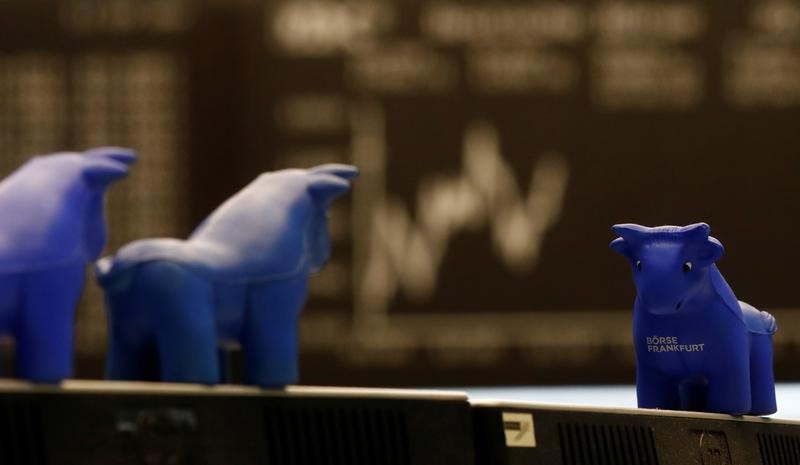European Stocks Higher; Corporate Earnings, German Factory Orders Help
2022.08.04 11:26

By Peter Nurse
Investing.com – European stock markets traded higher Thursday, helped by largely positive quarterly corporate earnings and better-than-expected German factory orders ahead of the Bank of England’s latest policy-setting meeting.
By 4 AM ET (0800 GMT), the DAX in Germany traded 0.9% higher, the CAC 40 in France rose 0.5%, while U.K.’s FTSE 100 traded largely flat.
European equities have built on the previous session’s gains, boosted by German factory orders performing better than expected in June, falling 0.4% on the month rather than the 0.8% expected in a month overshadowed by a growing energy crisis.
Also helping the tone has been a quarterly earnings season that has produced results that have generally bettered expectations.
Next (LON:NXT) stock rose 2.6% after the U.K. clothes retailer boosted its profit outlook for this year, as retail store sales recovered from their COVID-related slump.
Credit Agricole (OTC:CRARY) stock rose 3.6% after the French lender continued the strong run for Europe’s banks, announcing better-than-expected quarterly profits amid record activity in its investment banking division.
Lufthansa (ETR:LHAG) stock rose 5.8% after the German airline posted a return to operating profit in the second quarter, helped by booming demand for air cargo flights. Still, the carrier warned it would offer only around 80% of “pre-crisis” passenger capacity in the third quarter amid staffing shortages at airports and airlines.
Adidas (OTC:ADDYY) stock rose 1.5% after the German sportswear firm said currency-neutral sales rose 4% in the quarter even as operating profit took a hefty hit, mainly from the suspension of its business in Russia.
On the flip side, Rolls-Royce (OTC:RYCEY) stock fell 4.5% after the aero-engine maker warned of looming economic challenges despite reporting a more than billion pound improvement in first-half cash outflow.
However, gains are mainly centered on the continent with the Bank of England expected to raise interest rates by the most since 1995 later Thursday, as the central bank attempts to tackle inflation which hit 9.4% in June, a new 40-year high.
The BoE has already raised borrowing costs five times since December, and is widely expected to increase its benchmark rate by half a percentage point to 1.75%, its highest level since late 2008 at the start of the global financial crisis.
Oil prices stabilized Thursday after the previous session’s sharp losses on the back of data suggesting weakening U.S. demand as well as a small output increase by OPEC+ producers.
Both benchmarks fell by around 4%, to their weakest levels since February, on Wednesday after data from the Energy Information Administration showed crude inventories rose 4.5 million barrels last week and gasoline stockpiles gained 200,000 barrels.
These increases in stocks could point to a weakening of demand in the world’s largest consumer, and are particularly noteworthy in the summer driving season.
Additionally, the Organization of Petroleum Exporting Countries and its allies, a group known as OPEC+, agreed to increase production by 100,000 barrels per day in September.
By 4 AM ET, U.S. crude futures traded 0.2% higher at $90.80 a barrel, while the Brent contract fell 0.1% to $96.72.
Additionally, gold futures rose 0.7% to $1,789.35/oz, while EUR/USD edged 0.1% higher to 1.0177.








